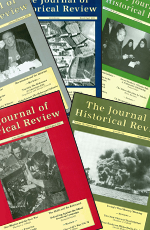Pearl Harbor: Case Closed?
Day of Deceit: The Truth about FDR and Pearl Harbor by Robert B. Stinnett. New York: Simon and Schuster, Touchstone, 2000. Paperback. 399 pages. Index, illustrations, maps. Pearl Harbor Betrayed: The True Story of a Man and a Nation under Attack by Michael Gannon. New York: Henry Holt, 2001. Hardcover. 340 pages. Index, illustrations, maps….

